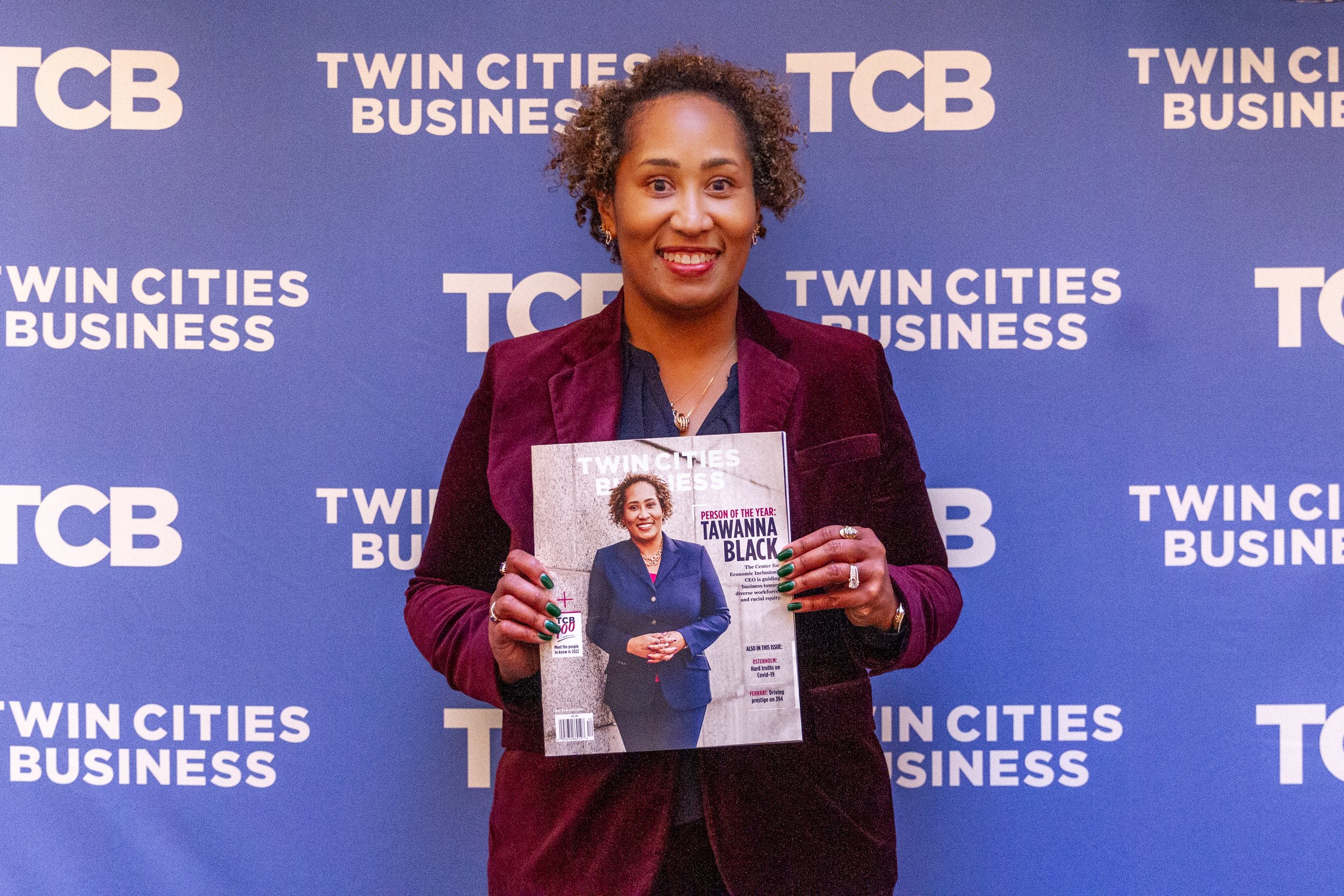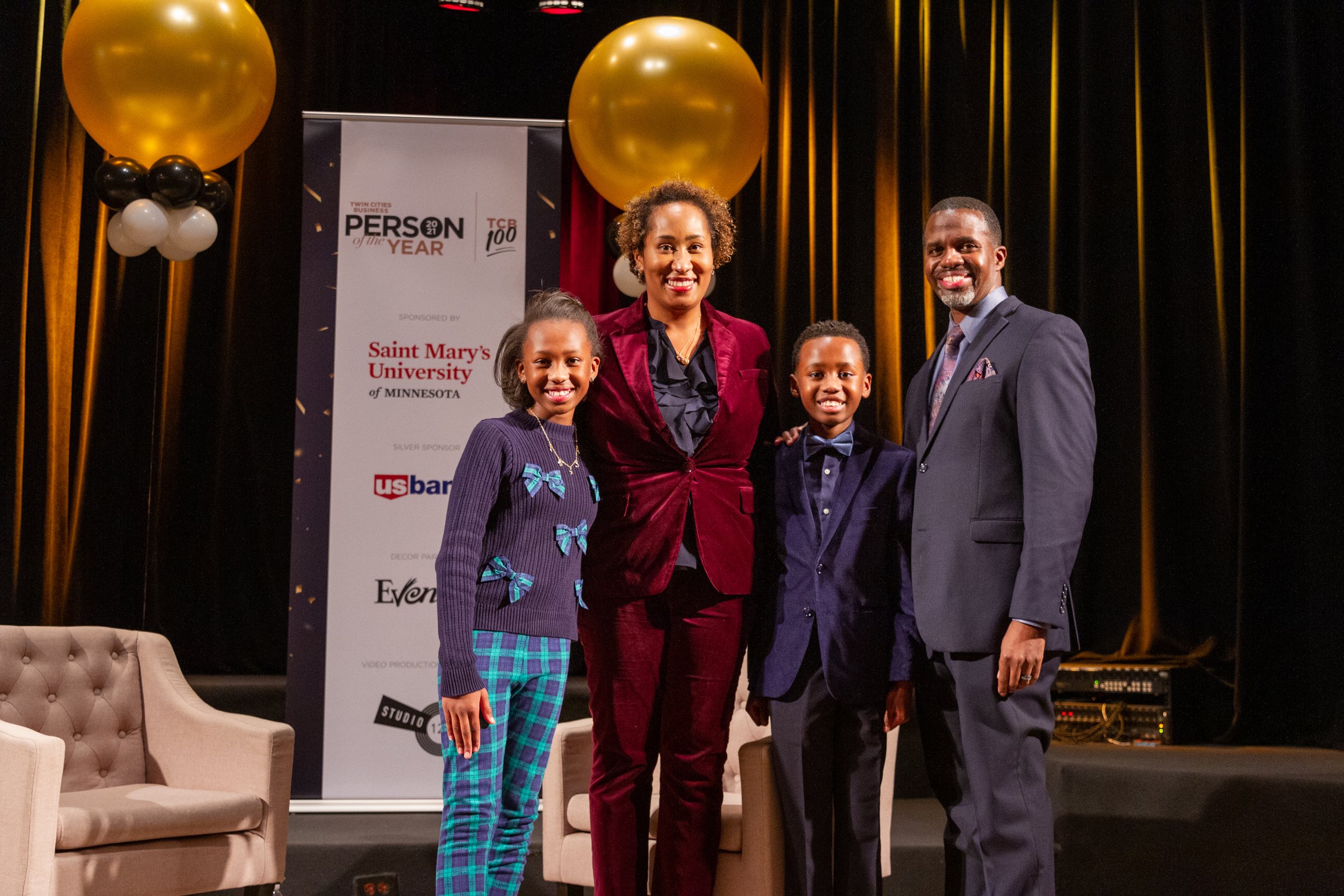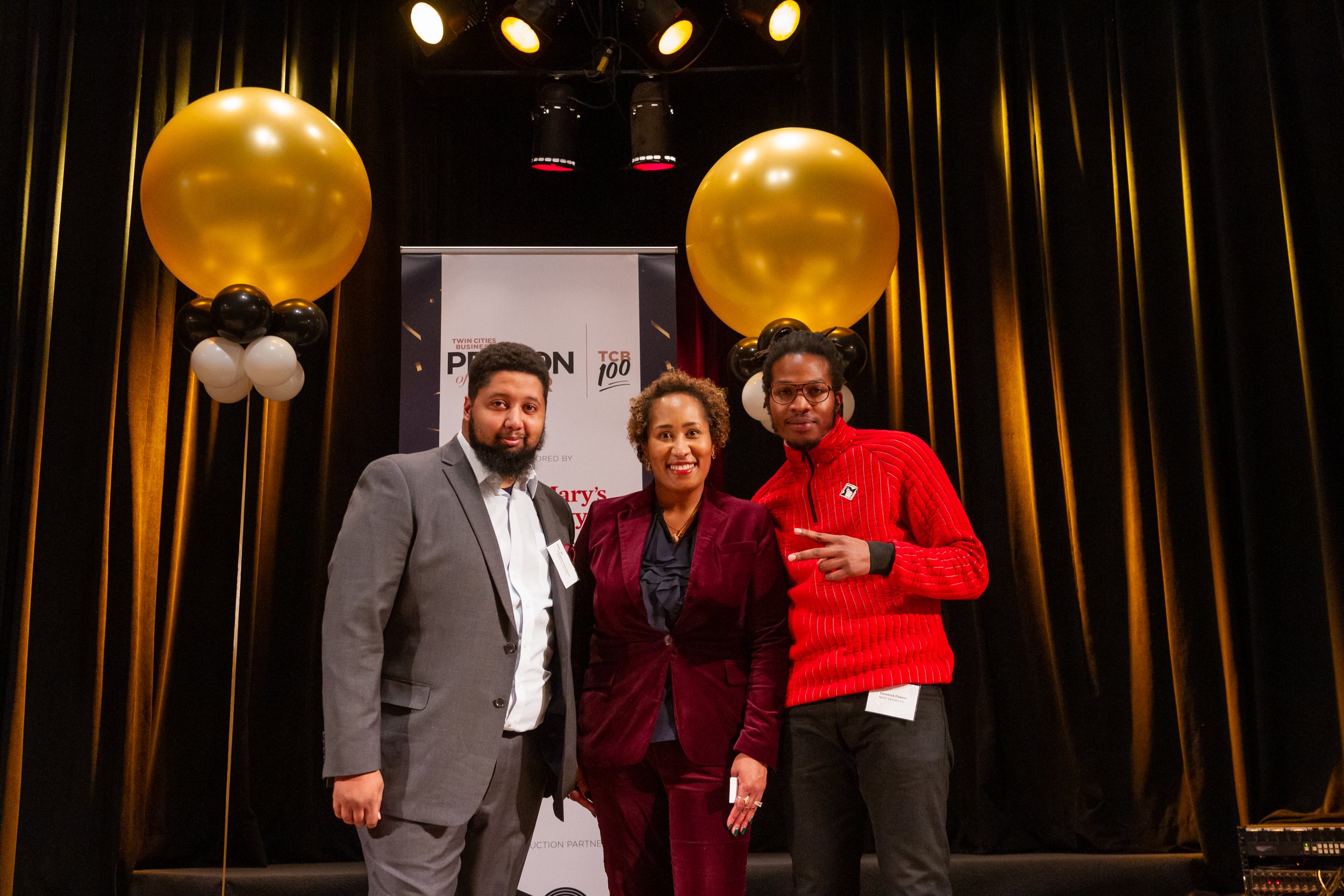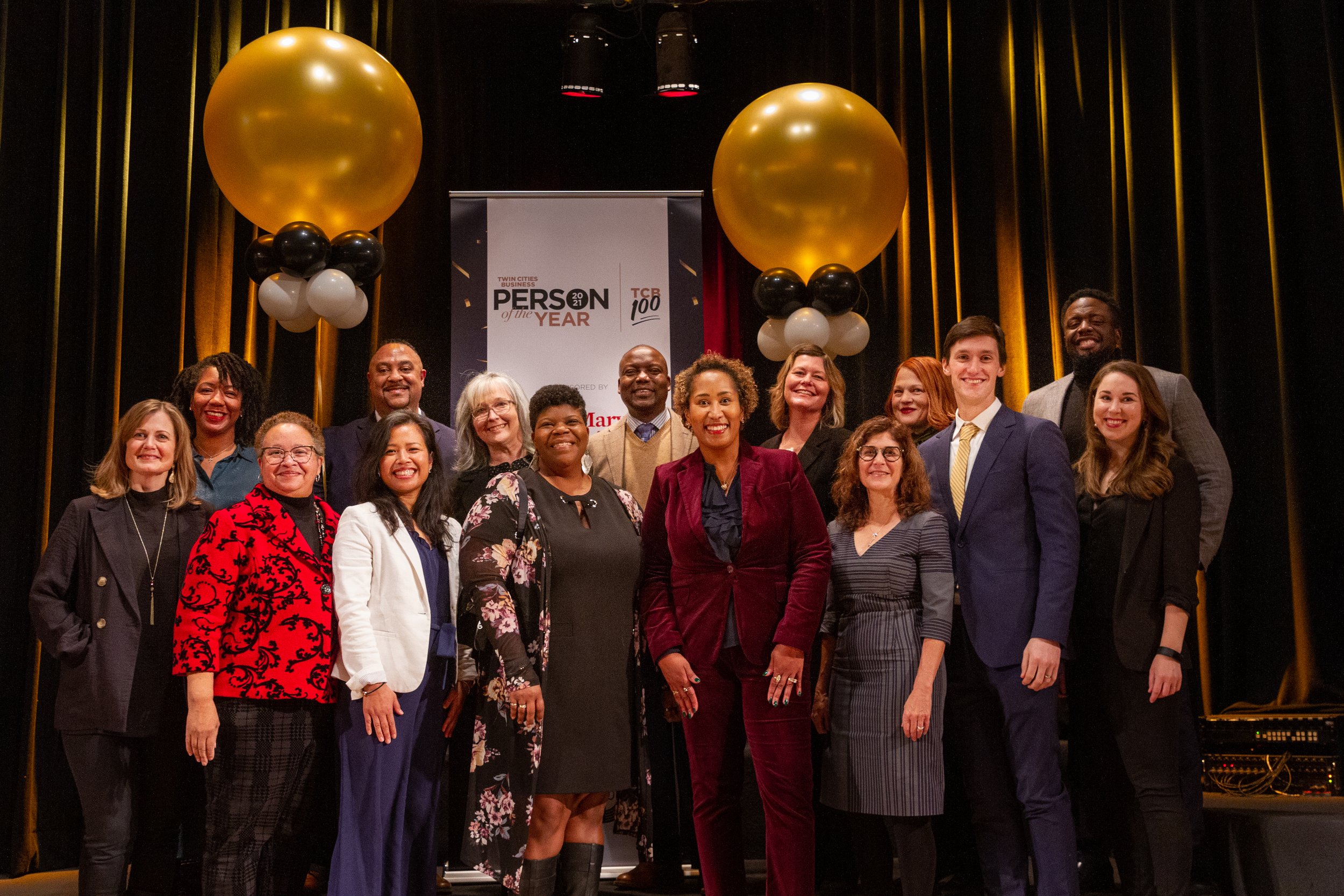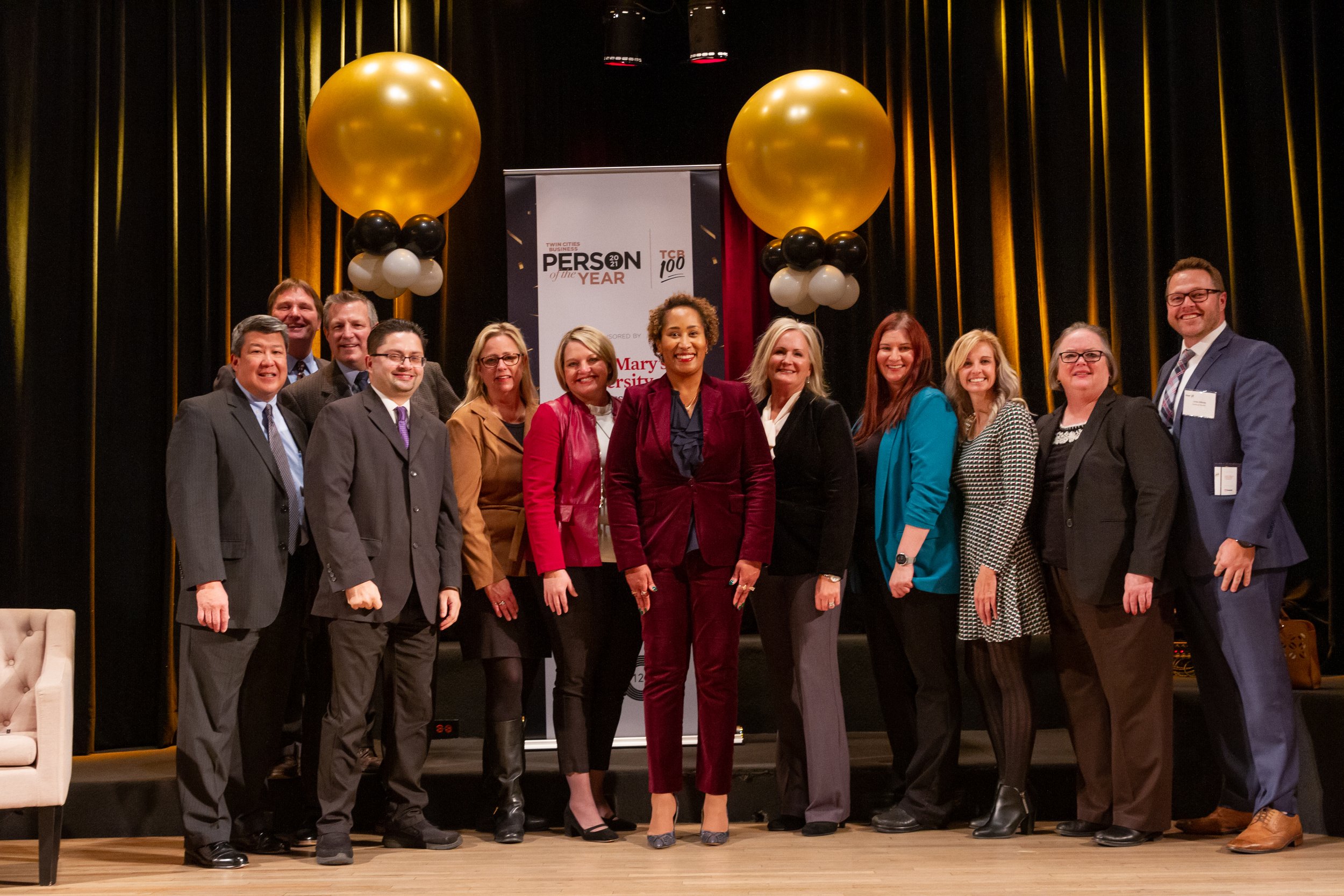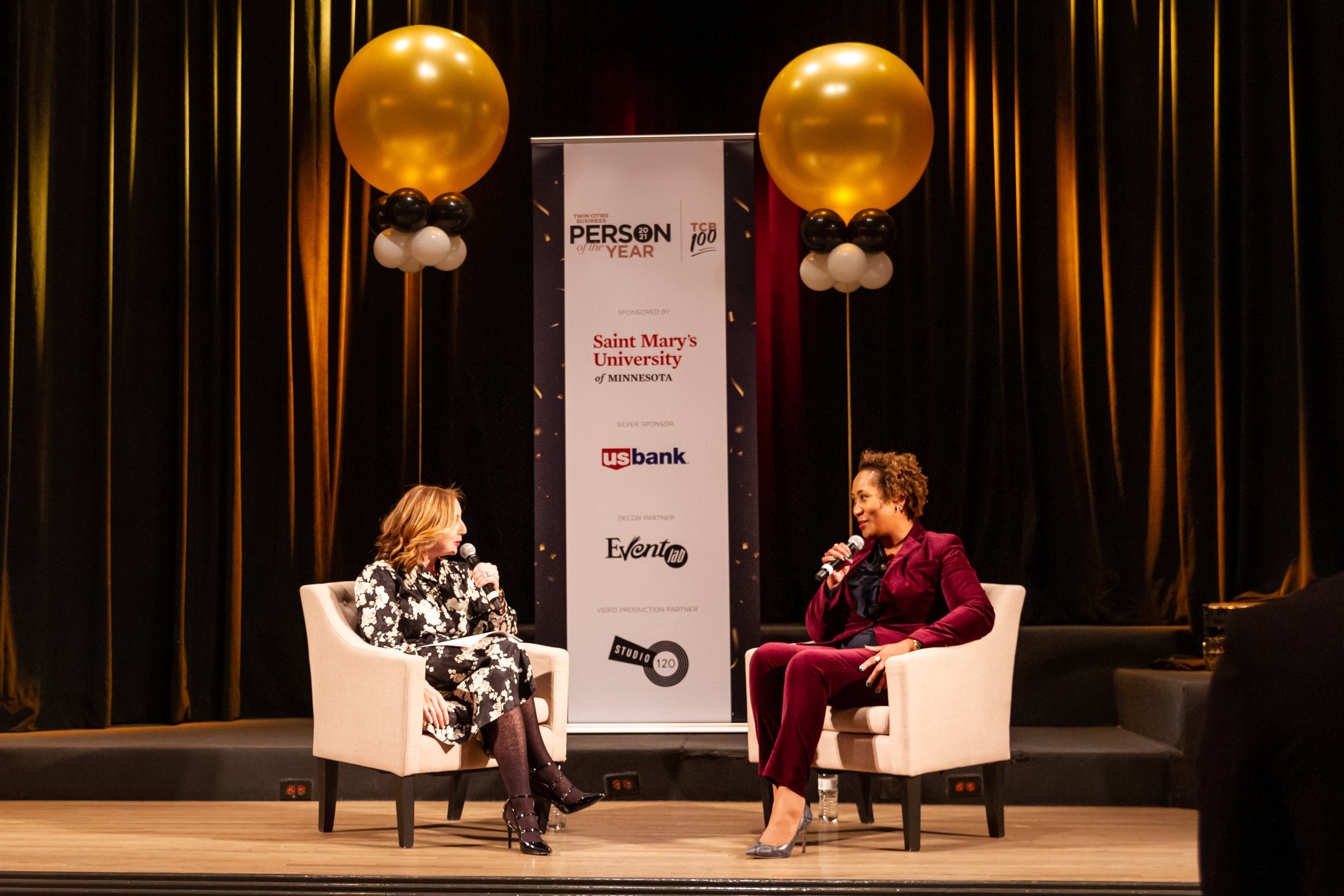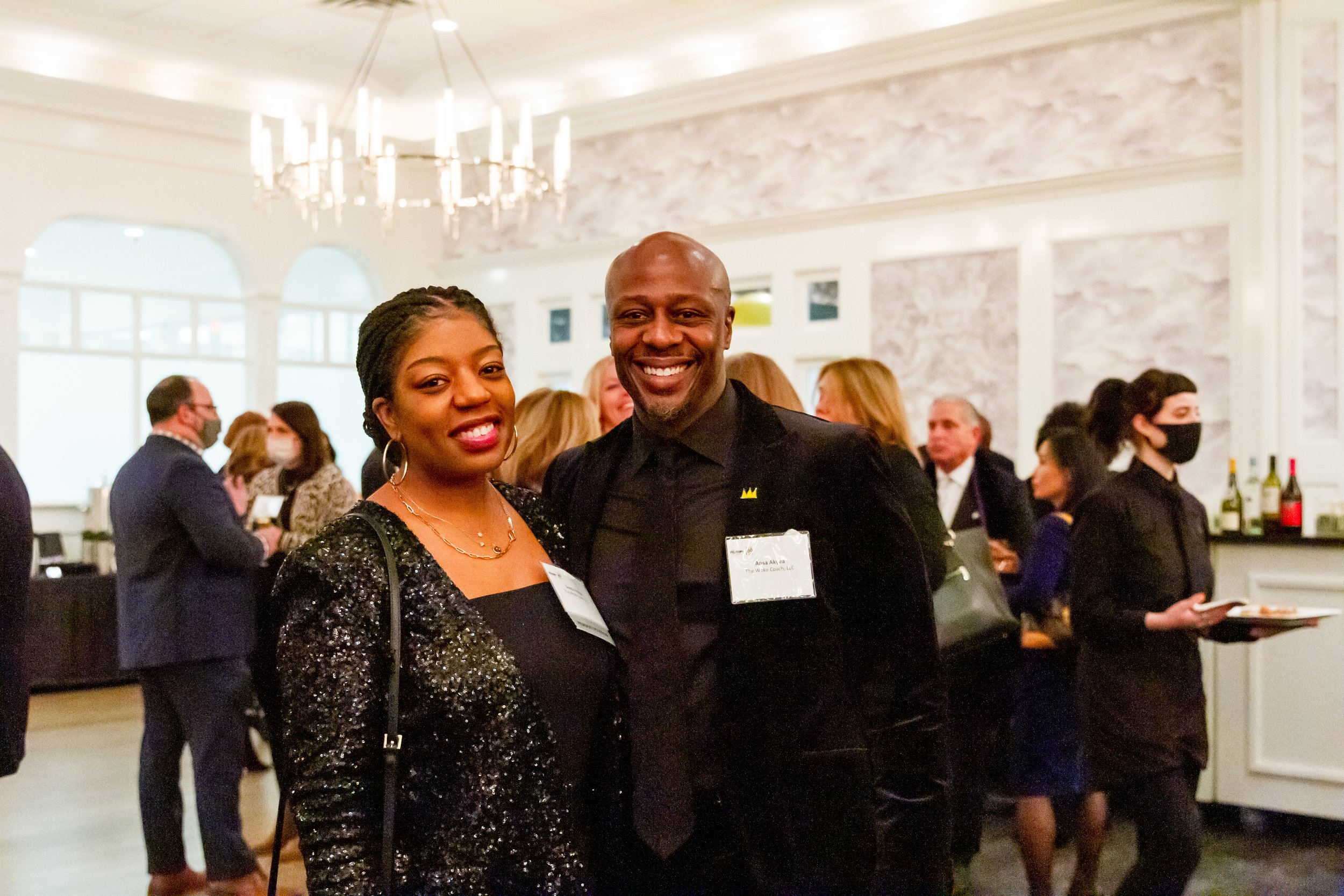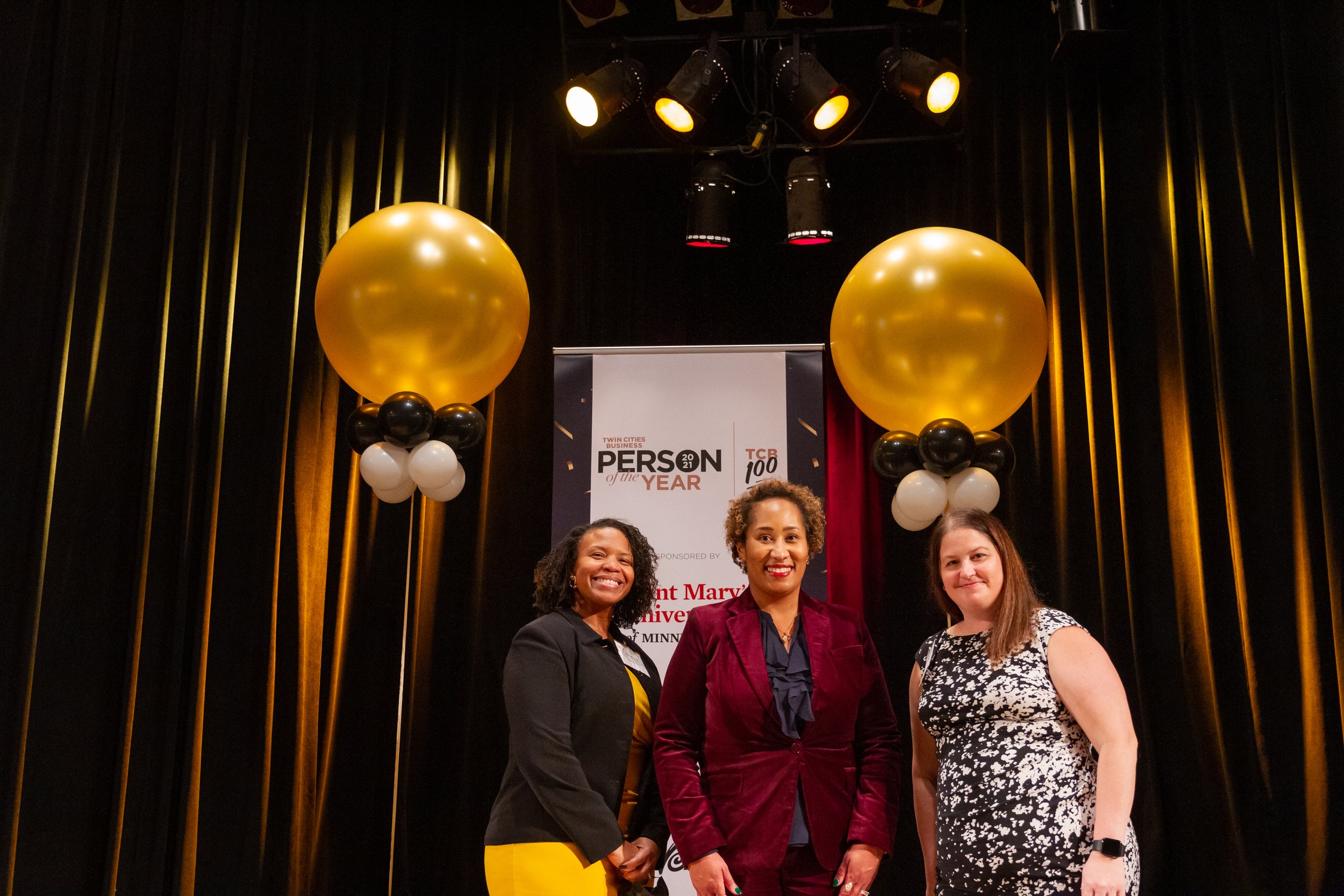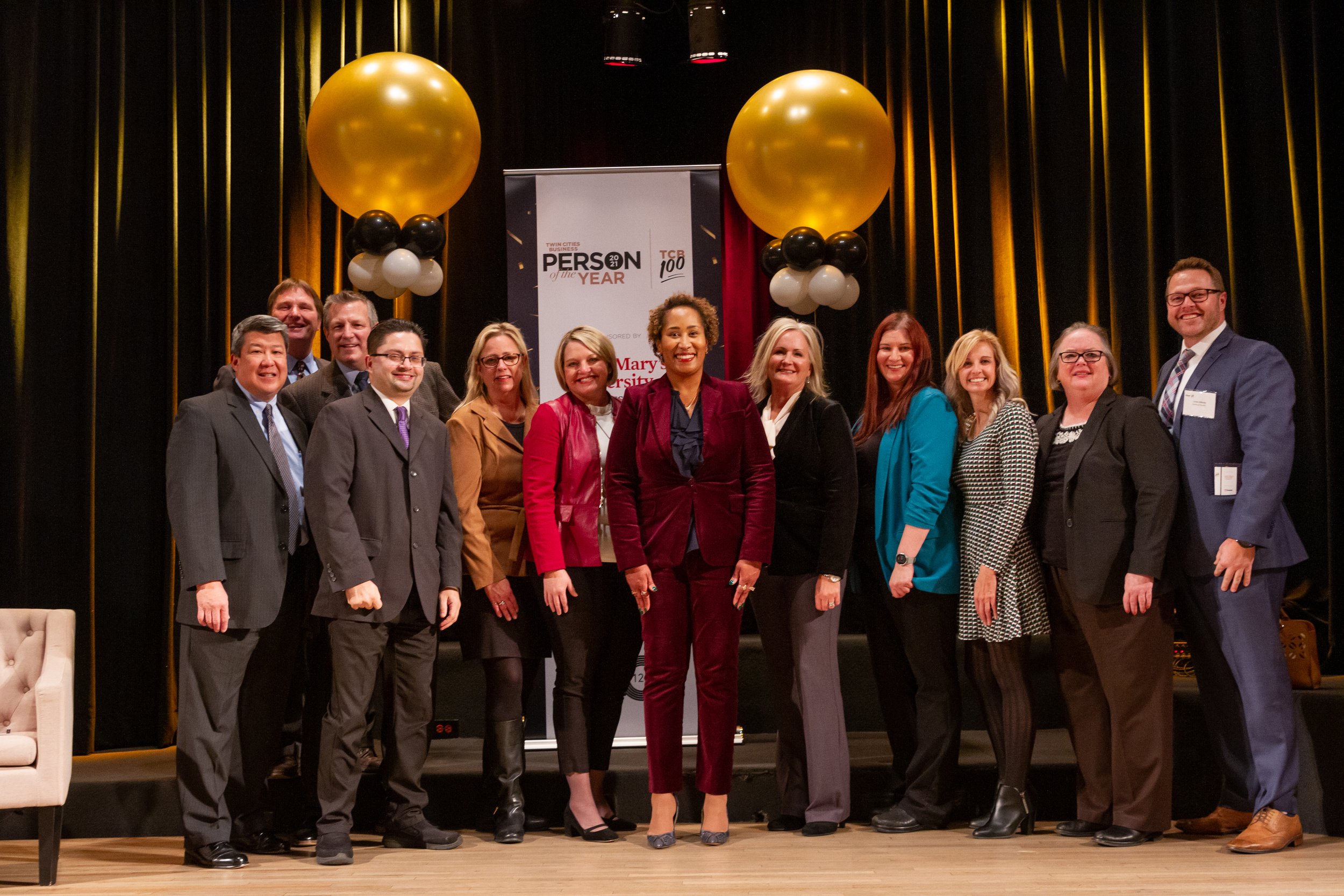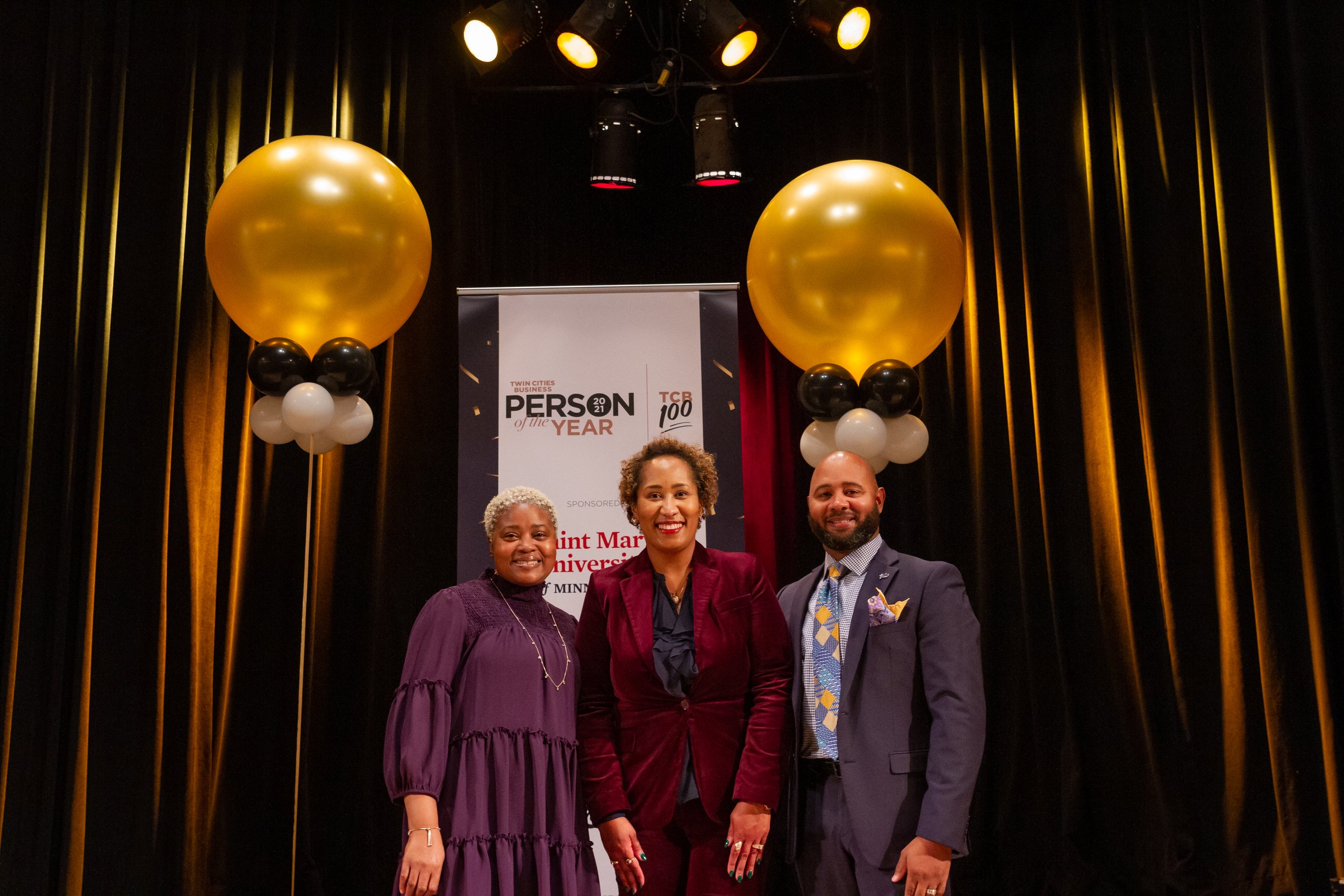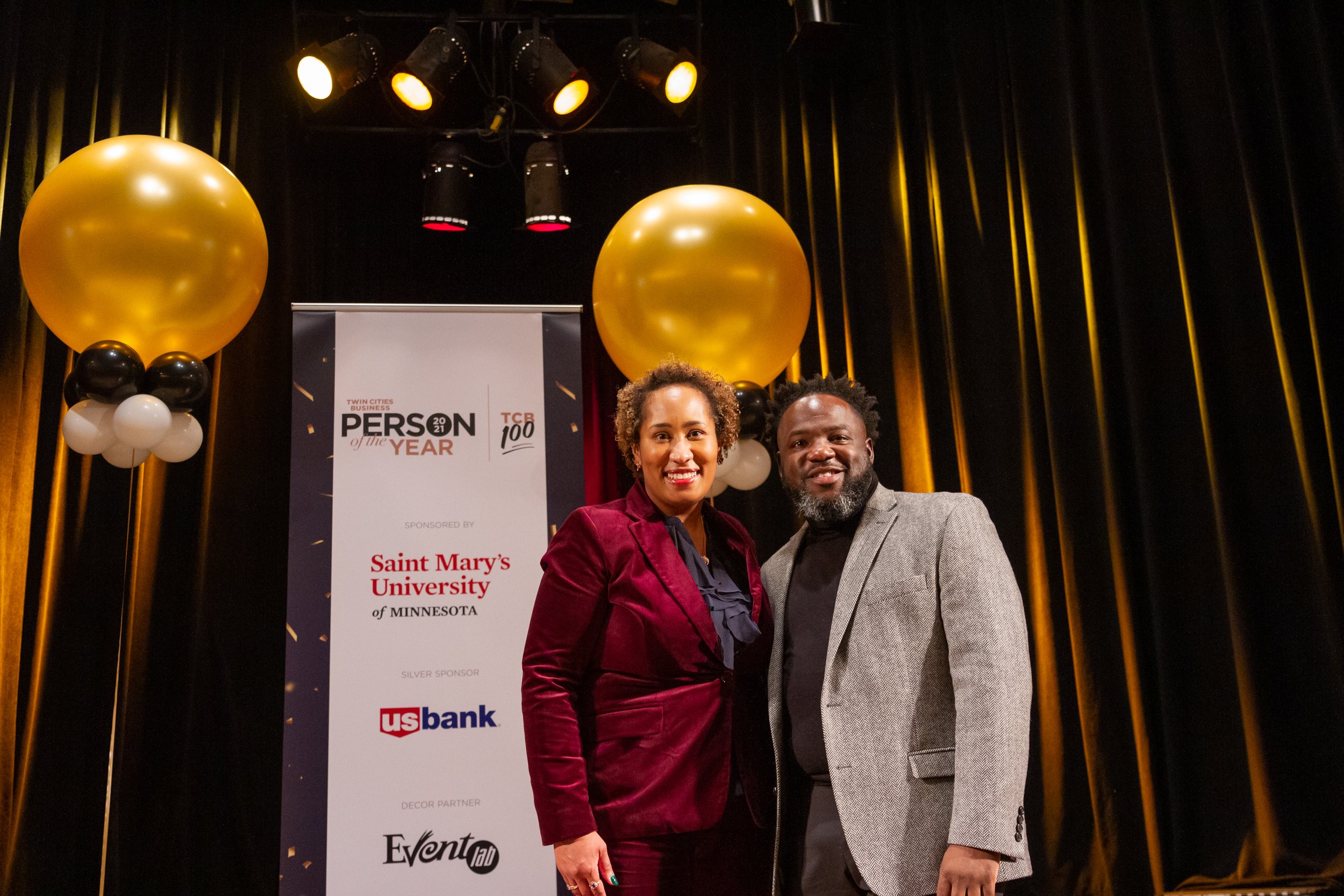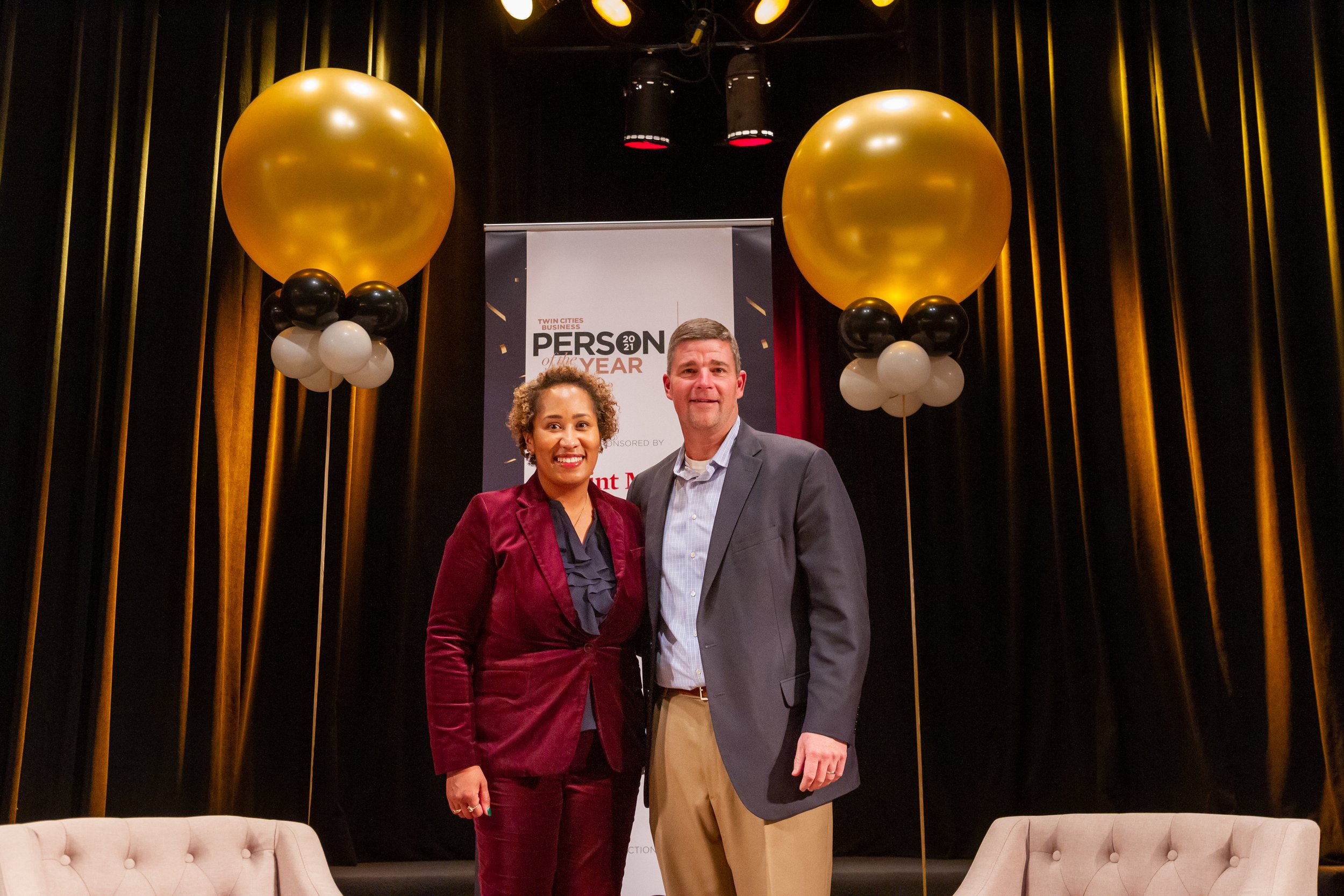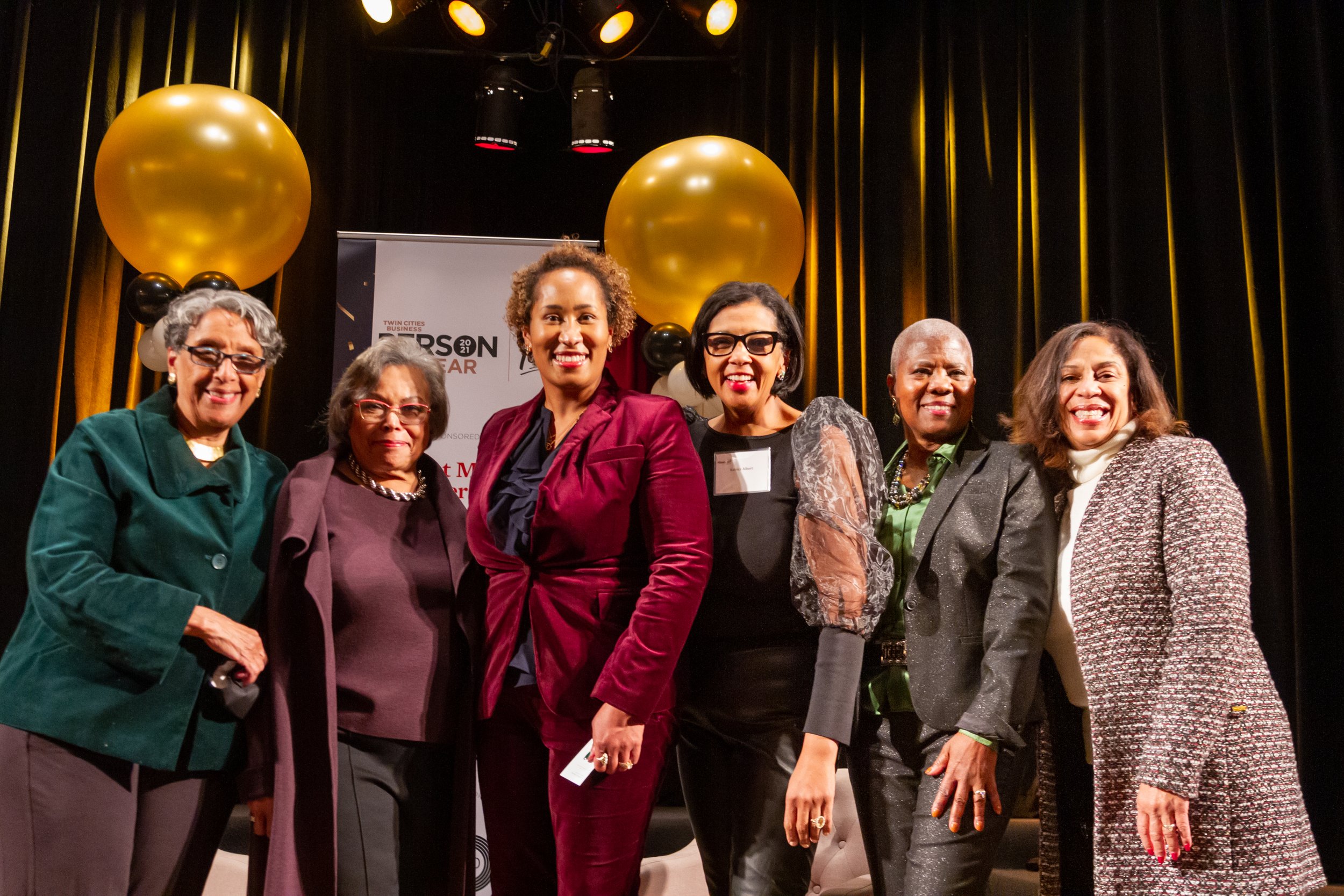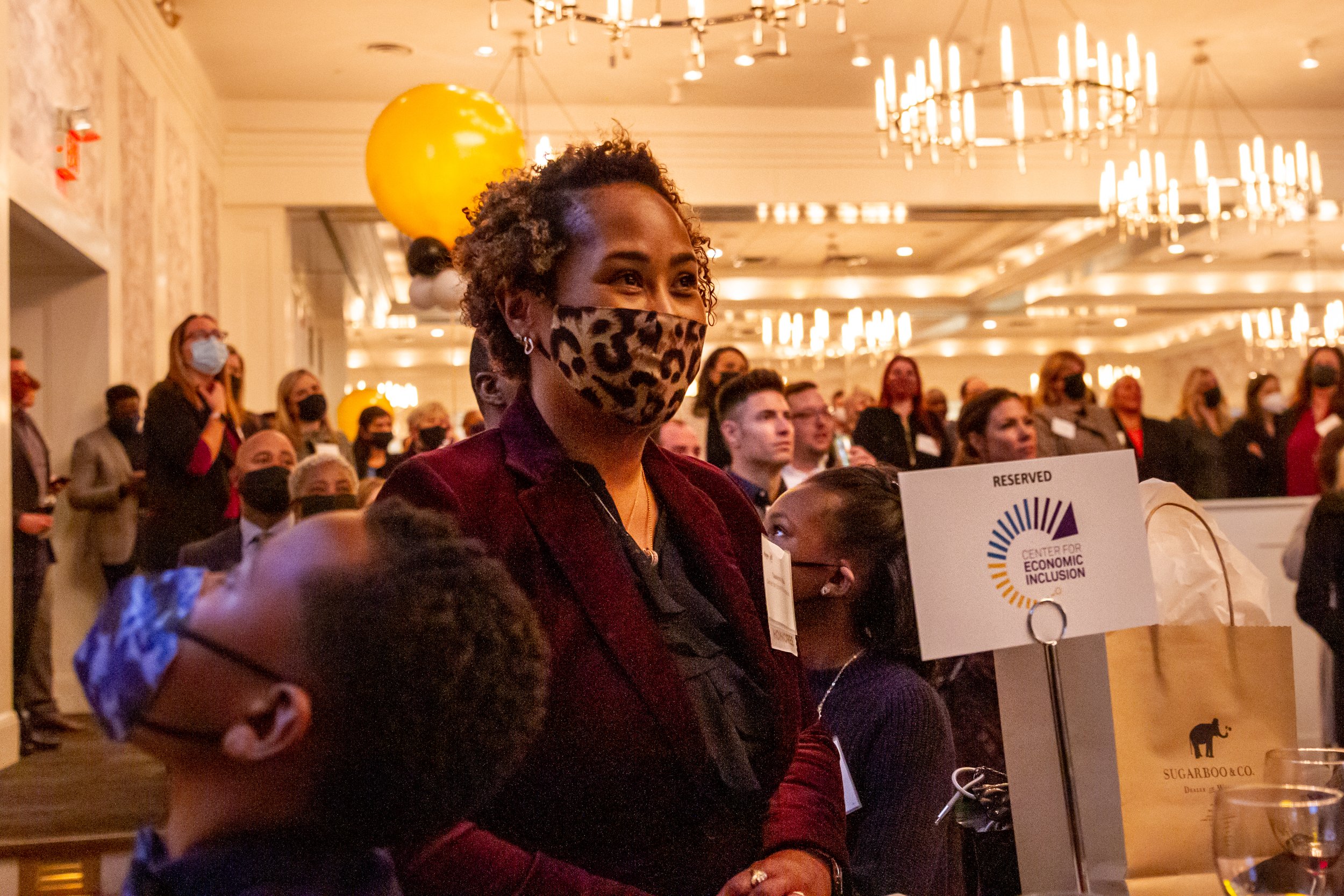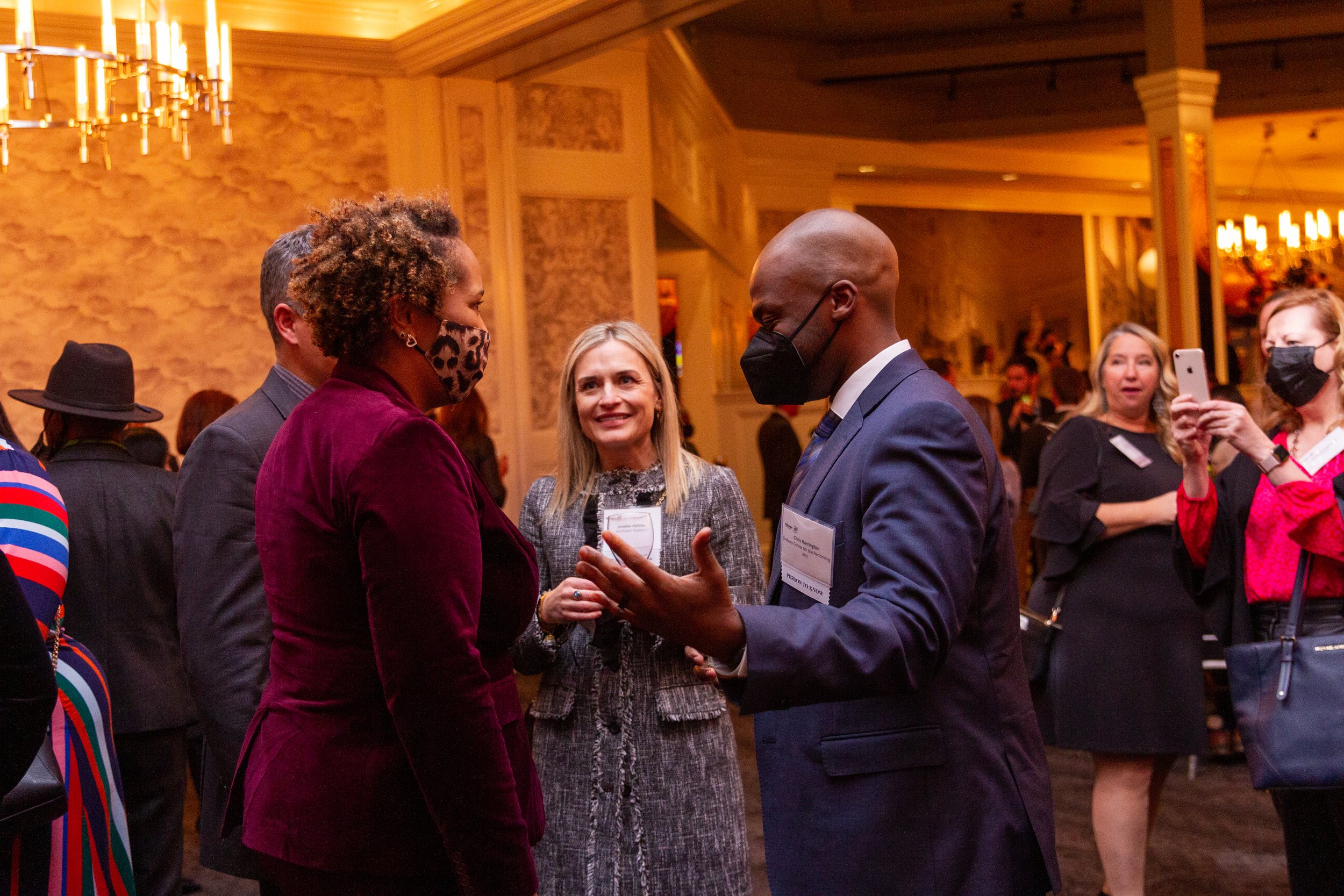Project Vanguard and the Vanguard Fund, a new effort led by the Center for Economic Inclusion in partnership with the Certified Access Initiative powered by Activate Network and Fearless Commerce, and NEOO Partners Inc., are one of six projects awarded nationally to invest in Black and Latina women business owners
February 3, 2022 (St. Paul, MN) — The Center for Economic Inclusion (Center) and partners, including Activate Network, Certified Access, Fearless Commerce, and NEOO Partners Inc., have won a $5 million, three-year philanthropic commitment from JPMorgan Chase.
JPMorgan Chase’s national, annual AdvancingCities Challenge specifically sourced project proposals this year designed for and by Black and Latina women to address racial and gender wealth gaps. JPMorgan Chase awarded winning collaborations across six U.S. cities a total of $30 million in philanthropic commitments. The firm selected the Center’s partnership to recognize regional efforts to build inclusive economic growth by investing in Black and Latina women.
The Minneapolis-St. Paul based partnership will launch Project Vanguard, a multi-sector accelerator committed to maximizing wealth-building and job creation with Black and Latina women business owners in the Minneapolis-St. Paul region. It is led by Black business owners experienced in business development, growth, and scale.
Project Vanguard will partner with business owners, corporations, and government agencies to accelerate inclusive job growth by certifying 25 new Black and Latina women-owned businesses over the next three years, with a specific focus on growth sectors.
“Entrepreneurship has fueled the vibrancy of Black and Latino families from Black Wall Street to Selby Avenue for generations, yet wealth extraction and poor investment vehicles have hindered growth, restricting economic prosperity in regions like Minneapolis-St. Paul,” said Tawanna A. Black, founder and CEO, Center for Economic Inclusion. “When we invest in women, we invest in transforming communities and economies.”
“This is a really big deal for the future of our inclusive local economy,” said Saint Paul Mayor Melvin Carter. “Major investments like these are well-deserved, and amplify the talent and energy our communities of color in Saint Paul have to offer.”
“Part of our vision is to not only build an ecosystem where existing Black and Latina women owned businesses are profitable but also encourage business development in growth sectors,” said Char Dobbs, Chief Operating Officer and Co-Owner, Activate Network, and Co-Founder, Certified Access Initiative. “It is critical that we have invested partners working in solidarity to ensure the opportunity of business growth, sustainability and/or scalability is equitable.”
The Center and its partners will work directly with Black and Latina women business owners to secure and fulfill public- and private-sector procurement contracts through the Center’s Racial Equity Employer Services & Consulting. Project Vanguard will offer clients training, mentorship, talent, and capital - both financial and social through sustained partnership with the Center for Economic Inclusion. The project partners will offer a menu of specialized training, certification, site selection, deal-making support, workforce development, and capital not currently available in this market.
“We know local communities have the best insights and expertise on their unique needs and are best poised to develop solutions to address them. Our role is boosting those local leaders,” said Demetrios Marantis, Global Head of Corporate Responsibility at JPMorgan Chase & Co. "In Minneapolis-St. Paul, our investment will focus on challenges faced by Black and Latina business owners, and ultimately, accelerate job growth and strengthen the local economy.”
“JPMorgan Chase's commitment to investing in organizations led by Black women, to close racial wealth gaps, and accelerate inclusive economic growth is commendable. The bank has invested in our work to help drive shared accountability for equitable supplier diversity for three years, and this investment will help us accelerate transformation and systems change,” said Tawanna A. Black, Center for Economic Inclusion.
A portion of the award will seed the Vanguard Fund, a $25 million fund at the Center for Economic Inclusion and Living Truth Enterprises, Incorporated designed to invest capital to help businesses grow and scale on terms that meet the needs of entrepreneurs and the market. The Fund will offer equity investments, revenue based financing and forgivable loans with average investments of $25,000-$250,000. The Vanguard Fund partners will recruit additional philanthropic, venture and angel investors who recognize the opportunity to recapture Minnesota’s history as a national leader for innovative business growth, by investing in the ideas and intelligence of Black and Latina women business owners.
“Vanguard Fund investments will support business owners in efforts to attract and deploy financial capital and provide gap financing, bridge loans, land and property purchase and development, equipment, and staff expansion,” said D’Angelos Svenkeson, Founder and Chief Executive Officer, NEOO Partners Inc. “We'll offer forgivable loans, equity investments, and revenue-based financing. The Fund will help stimulate inclusive investing among angel, venture, and traditional investors.”
“Project Vanguard has been built to position Black and Latina women business owners as key forces in dismantling the barriers to economic inclusion and wealth generation,” said Camille A. Thomas, Co-Founder, Fearless Commerce; Founder, Activate Network; and Co-founder, Certified Access Initiative. “Over the next three years, we will catalyze access to capital, advance supply-demand matches via procurement inclusion, and open the door to meaningful jobs for employees often left on the sidelines.”
Together, Project Vanguard and the Vanguard Fund will elevate the role of Black and Latina women business owners and their businesses as indispensable drivers of economic growth for Minnesota, and the engines of economic opportunity for other Black, Indigenous, Latinx and Asian people who can be hired into family-sustaining, career-pathway opportunities resulting from their business growth.
“This investment by JPMorgan Chase in the Certified Access Initiative will accelerate our support for businesses owned by Black and Latina women as they work to scale their businesses,” said Shawntera M. Hardy, Co-Founder, Fearless Commerce, and Co-Founder, Certified Access Initiative. “The Certified Access Initiative has successfully worked with government entities and corporations to increase contracts with Women of Color by improving procurement operations and creating a pool of certified business owners ready to sell their goods and services.”
The Center is hiring a director for Project Vanguard, and the partnership will announce the first accelerator and funding rounds in the spring. For more information, contact vanguard@centerforeconomicinclusion.org
###
ABOUT PROJECT VANGUARD
Project Vanguard is a multi-sector collaboration committed to maximizing wealth-building opportunities for Black and Latina women business owners in the Minneapolis-St. Paul region. Project Vanguard is led by the Activate Network, Center for Economic Inclusion, Certified Access, Fearless Commerce, Living Truth Enterprises, and NEOO Partners Inc.
Activate Network
The Activate Network is a premium network of Women of Color-owned businesses and workplace professionals, opening doors to opportunities and resources for fostering accelerated growth. Activate Network memberships provide exclusive access to business, wellness and personal development resources that are designed specifically for Women of Color, about 25% of which are Latina. As a partner in the Vanguard Project, Activate Network in partnership with Fearless Commerce will deploy the Certified Access Initiative 8-week Academy, which supports Women of Color business owners becoming certified and connects them to contract and capital opportunities.
Center for Economic Inclusion
The Center for Economic Inclusion (Center) is committed to closing racial employment, income, and wealth gaps, and building racially inclusive and equitable regional economies. Founded in 2017, the Center is the nation’s first Black woman founded and led organization dedicated exclusively to strengthening public- and private-sector civic infrastructures and collective capacity to disrupt systems and influence market forces while advancing an inclusive economy. In addition to working within the public- and private-sector nationally, the Center for Economic Inclusion works throughout the Minneapolis-St. Paul region and seven county metropolitan area, including Anoka, Carver, Dakota, Hennepin, Ramsey, Scott, and Washington counties.
Certified Access Initiative
The Certified Access Initiative (CA), powered by Activate Network and Fearless Commerce, successfully works with government entities and corporations to increase business with Women of Color. CA provides Women of Color business owners access to certification and credible business building tools to improve operations and sustain relationships in the ecosystem. Additionally, CA connects and consults with government and corporations ready to make systemic change in order to advance inclusive contracting opportunities. By 2030, CA ambitiously aims to increase the number of certified Women of Color Businesses by 10% and increase government and corporate spend by 10% via the CA Academy and Summit.
Fearless Commerce
Fearless Commerce, a nationally recognized company, is on a mission to build an ecosystem where Black Women are seen and positioned to operate competitive high growth businesses. Through programming focused on the “back office”, Fearless Commerce exists to support the backbone of our economy throughout the business building journey - from courageously starting and scaling to intentionally exiting. As a partner in the Vanguard Project, Fearless Commerce in partnership with The Activate Network will deploy the Certified Access Initiative 8-week Academy, which supports Women of Color business owners becoming certified and connects them to contract and capital opportunities.
NEOO Partners Inc.
NEOO Partners Inc. specializes in placemaking and community engagement, real estate, project management and finance services for business owners, local and regional governments, and universities. NEOO Partners Inc. is committed to applying people centered, empathetic and data informed tools and practices to unlock the concealed value in clients' operations, practices and strategies in ways that ultimately build wealth in Black and Brown communities. NEOO Partners Inc. has a track record of successfully guiding women business owners through the process of business expansion, site selection for purchase or lease and economic development. They will provide these services to Project Vanguard lab participants and investors. The Mustard Seed Fund, LLC, will be another source of potential capital for lab members.















